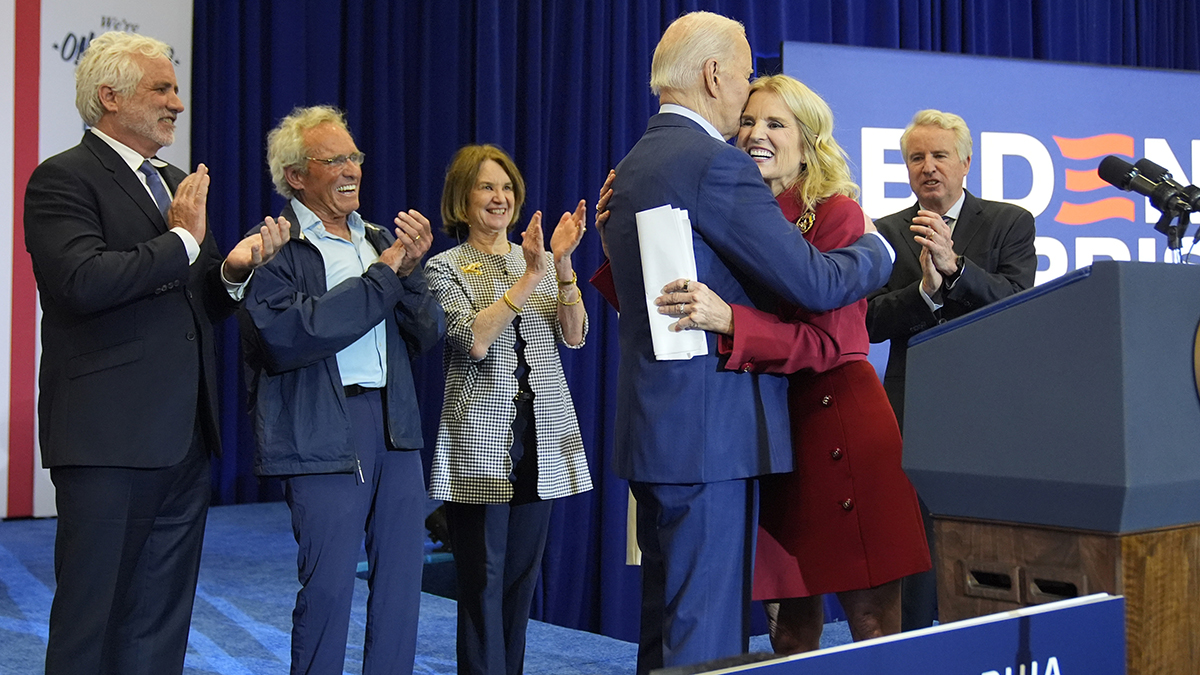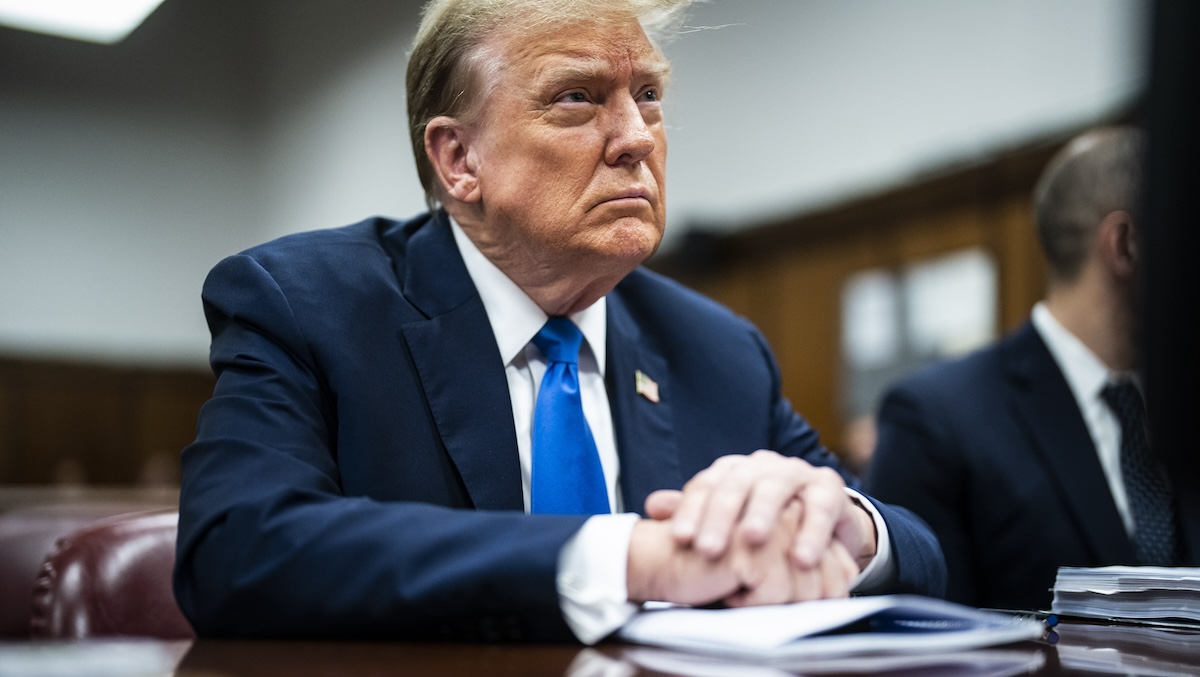President Donald Trump mischaracterized his immigration-law achievements, the plight of children taken from parents at the Mexico border and what's known about Russia's interference in the 2016 election in his wide-ranging interview with The Associated Press.
A look at his comments on those subjects Tuesday:
IMMIGRATION
TRUMP: "We have the worst laws in the history of the world on immigration and we're getting them changed one by one. We've made a lot of progress in the last couple of weeks even, but we're getting them changed one by one."
THE FACTS: He's actually failed to achieve changes in immigration laws. All of the immigration-related changes pushed by his administration were done by executive order, not legislation, or through policy shifts like the zero tolerance policy that criminally prosecuted anyone caught crossing illegally and gave rise to family separations. The administration has also used regulations to tighten the rules on how immigrants can receive public benefits. Immigration legislation has failed despite Republican control of the White House and both houses of Congress.
___
TRUMP, on the separation of children from their parents at the border: "Now President Obama had the same law. He did the same thing."
THE FACTS: Obama did not do the same thing as a matter of policy. It's true the underlying laws were the same. But the Trump administration mandated anyone caught crossing the border illegally was to be criminally prosecuted. The policy meant adults were taken to court for criminal proceedings, and their children were separated and sent into the care of the Health and Human Services Department, which is tasked with caring for unaccompanied migrant children. The so-called zero tolerance policy remains in effect, but Trump signed an executive order June 20 that stopped separations.
Politics
Jeh Johnson, Obama's homeland security secretary, told NPR there may have been unusual or emergency circumstances when children were taken from parents but there was no such policy.
___
TRUMP: "And in fact the picture of children living in cages that was taken in 2014 was a picture of President Obama's administration and the way they handled children. They had the kids living in cages. They thought it was our administration and they used it, and then unbeknownst to them and the fake news they found out, 'Oh my God, this is a terrible situation.' This was during the Obama administration."
THE FACTS: He's right. Images that circulated online during the height of Trump's family separations controversy were actually from 2014 under the Obama administration. But circumstances for some children have not changed. In June, an Associated Press reporter was part of a group that visited a U.S. Border Patrol holding facility, where hundreds of children were waiting in a series of cages created by metal fencing. One cage had 20 children inside, scattered around were bottles of water, bags of chips and large foil sheets intended to serve as blankets. The cages in each wing opened out into common areas to use portable restrooms.
The children both in 2014 and 2018 were separated temporarily from their parents in the facilities, placed in areas by age and sex for safety reasons.
RUSSIA INVESTIGATION
TRUMP, about Mueller's Russia investigation: "It's a tremendous waste of time for the president of the United States. To think that I would be even thinking about using Russia to help me win Idaho, we're using Russia to help me win the great state of Iowa or anywhere else is the most preposterous, embarrassing thing."
THE FACTS: Trump may be right that he did not need a boost in Idaho and Iowa, states he won in 2016 with comfortable margins of 31 points and 9 points, respectively. But the notion of Russia-backed activities on his behalf "anywhere else" in the U.S. is not far-fetched, according to an indictment in February by special counsel Robert Mueller.
The indictment accuses 13 Russians and three Russian entities of seeking to help Trump defeat Democrat Hillary Clinton by running a hidden social media trolling campaign and seeking to mobilize Trump supporters at rallies while posing as American political activists in "purple states like Colorado, Virginia and Florida." According to the indictment, the surreptitious campaign was organized by the Internet Research Agency, a Russian troll farm financed by companies controlled by Yevgeny Prigozhin, a wealthy businessman with ties to President Vladimir Putin.
The indictment says the defendants commonly referred to targeting more closely divided "purple states" after being advised by a Texas-based grass-roots organization in June 2016 to focus efforts there.
The indictment details contacts targeting three unidentified officials in the Trump campaign's Florida operation. In each instance, the Russians used false U.S. personas to contact the officials. The indictment doesn't say if any of them responded.
Trump lost by nearly 2.9 million votes in the popular vote to Clinton, but captured the needed Electoral College votes to win the presidency after prevailing in politically divided states including Florida, Michigan, Pennsylvania and Wisconsin.
___
TRUMP: "This was an excuse made by the Democrats for the reason they lost the Electoral College, which gives them a big advantage — a big advantage. Very different than the popular vote. The popular vote would be much easier to win if you were campaigning on it. ... But winning the Electoral College is a tremendous advantage for the Democrats."
THE FACTS: Trump is falsely asserting, as he has before, that Democrats have a "big advantage" in the Electoral College. Its unique system of electing presidents is actually a big reason why Trump won the presidency. Four candidates in history have won a majority of the popular vote only to be denied the presidency by the Electoral College. All were Democrats.
In the 2016 election, Clinton received nearly 2.9 million more votes than Trump after racking up lopsided victories in big states such as New York and California, according to election data compiled by The Associated Press. But she lost the presidency due to Trump's winning margin in the Electoral College, which came after he narrowly won less populous Midwestern states including Michigan and Wisconsin.
Unlike the popular vote, Electoral College votes are set equal to the number of U.S. representatives in each state plus its two senators. That means more weight is given to a single vote in a small state than the vote of someone in a large state.
___
TRUMP, on his former personal lawyer, Michael Cohen: "By the way, he was in trouble not for what he did for me; he was in trouble for what he did for himself. You do know that? Having to do with loans, mortgages, taxicabs and various other things, if you read the paper."
THE FACTS: Cohen was definitely in trouble for what he did for Trump. He stated in open court that Trump directed him to arrange payments of hush money to porn star Stormy Daniels and former Playboy model, Karen McDougal, to fend off damage to Trump's White House bid.
Cohen said one payment was made "in coordination and at the direction of a candidate for federal office," and the other was made "under direction of the same candidate."
It is true that Cohen did not identify Trump, but there was no ambiguity in court documents or in his statement.
Cohen's extraordinary statement at his August plea hearing marked the first time any Trump associate, in open court, has implicated the president himself in a crime.
Trump is, however, correct that other charges which Cohen admitted to didn't involve the candidate or the campaign and were for tax deception.
__
TRUMP: "Do you know these Russian hackers you're talking about from Moscow? They have nothing to do with me. ... They were hackers from Moscow. Some of them supported Hillary Clinton."
THE FACTS: The Mueller indictment offers no evidence or reason to believe that the Russian effort was intended to help elect Clinton — quite the opposite. Some anti-Trump messaging tied to Russians was indeed disseminated online, but investigators believe the motive was to spread confusion and discord in the campaign, not to elect her.
The pro-Trump efforts identified in the indictment were strategic, on the ground in key states as well as online, and included attempts to make contact with Trump campaign officials. Russian President Vladimir Putin, while denying any involvement in Russian interference, has said he wanted Trump to win.



